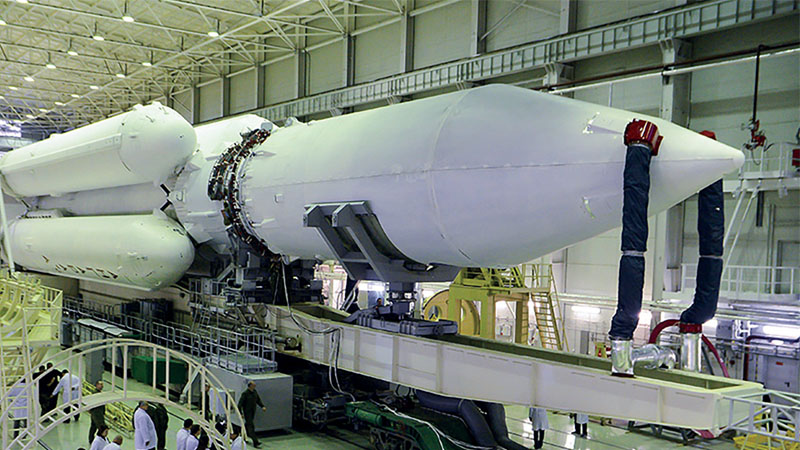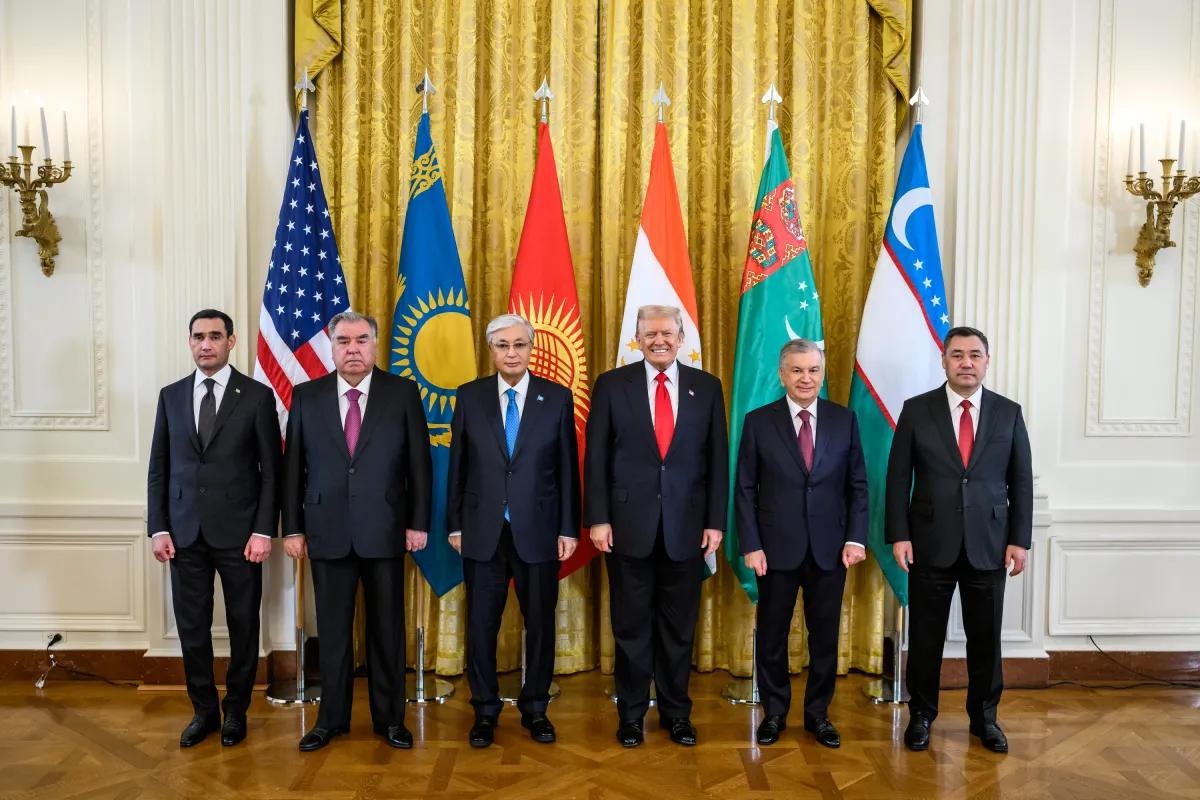
Russia Aims to Return to Baikonur Cosmodrome Amid Vostochny Problems
Russia Aims to Return to Baikonur Cosmodrome Amid Vostochny Problems
The Russian Space Agency (Roscosmos) made a surprise announcement on June 2. The head of the agency, Igor Komarov, told the media that the first launch of a brand new manned spacecraft called Federation was planned from the Baikonur Cosmodrome in central Kazakhstan in 2022. The spaceship will use a new rocket, the Soyuz-5, to deliver it to near-earth orbit. Adaptation to Soyuz-5 will require a refurbishment of the existing launch platform in cooperation with the Kazakhstani side. Komarov added that the initial modernization was slated to begin only in 2021 or 2022, as part of the joint Russian-Kazakhstani space initiative codenamed “Baiterek,” but a decision was made to speed up the process. What he did not say is that the Federation spacecraft was originally expected to blast off from the new Vostochny Cosmodrome, in the Russian Far East, instead of Baikonur. Two more interesting details: Kazakhstan reportedly agreed to fund ground-based infrastructure at Baikonur, and the development of the Soyuz-5 rocket will be partly financed by private investors (Lenta.ru, June 3; Interfax, Ren.tv, June 2).
The issue was again discussed in Astana in mid-June, at the fifth meeting of the Baikonur Intergovernmental Commission, which was attended by the chief Russian negotiator on space matters, Deputy Prime Minister Dmitry Rogozin. The Russian delegation confirmed its interest in accelerating the once-abandoned “Baiterek” program and pledged full financial and technical support. Kazakhstan’s commitment, estimated at $245 million, has yet to be officially approved, with Kazakhstani officials reportedly asking for more time to crunch the numbers. At the same time, however, Astana does not rule out eventually pledging an even higher contribution. Although the meeting took place behind closed doors, a minor sticking point between the two sides was leaked to the press. Russia and Kazakhstan apparently cannot agree on whose responsibility it will be to ensure safety and security at Baikonur. Russia still technically owns the site and, despite years of negotiations, the Kazakhstani authorities have not yet retaken ownership of the infrastructure—a precondition for taking charge of overall safety (Kommersant, Arms-expo.ru, June 14; Liter.kz, Caravan.kz, June 13).
Still, the complexity of the Baikonur Cosmodrome goes beyond purely technical issues. Russia has been leasing the space facility since 1994, for $115 million a year. In 2004, Kazakhstan granted Roscosmos another extension, until 2050, without raising the rental fee. That decision was largely motivated by hopes that Kazakhstani authorities then nurtured with regard to the “Baiterek” program, aimed at replacing Russia’s highly toxic Proton rockets with an eco-friendly variant named Angara. It took the two governments a full 11 years to understand that they disagreed more than they agreed. In the end, Russia decided to launch Angara rockets exclusively from Vostochny, following its repeated requests for a nine-fold increase of the shared budget, from $223 million to $2 billion, to which Kazakhstan could not subscribe. To many in Kazakhstan, the $115 million annual rent would only make sense if “Baiterek” were implemented; otherwise, it is far below the market level. Roscosmos needs to carry out only two privately financed launches, whose unitary cost stands at approximately $70 million, to be able to recoup the rent (RFI—Russian service, June 4, 2017; Interfax, June 1, 2017; April 14, 2015).
Kazakhstani media outlets widely republished a recent article by the German daily Der Spiegel, whose author claimed that Russia’s decision to shift Soyuz-5 launches from Vostochny to Baikonur had to do with severe technical problems. Many of them could have been avoided had it not been for the large-scale corruption and fraud committed by those in charge of the project. In December 2016, on the heels of President Vladimir Putin’s decision to liquidate the Federal Agency for Special Construction (Spetsstroy), Dmitry Rogozin declared that “there are no construction sites in Russia that are not messy.” Spetsstroy was responsible for the Vostochny Cosmodrome’s infrastructure but quickly became mired in extensive corruption scandals. Multiple delays, quality defects, and cost overruns prevented Vostochny from meeting any of its and development goals to date. As a result, this new space port in the Russian Far East cannot physically launch Soyuz-5 rockets and is unlikely to be able to do so in the short or medium term (Inosmi.ru, June 15; Lenta, April 28; Interfax, December 29, 2016).
Russia had been a major player in the commercial space industry until 2016, when it was overtaken by both the United States and China. Russia carries out around 20 launches yearly and is known for its competitive pricing. However, recent rocket failures, which in some cases resulted in the destruction of costly satellites, significantly dented its international reputation. The Kazakhstani daily Caravan spoke earlier this month to Russian space expert Alexander Zheleznyakov, who said that Moscow’s desire to begin launching Soyuz-5 rockets from Baikonur, instead of waiting for the completion of Vostochny, was driven by economic considerations. Russia obviously needs to offer innovation to potential customers if it wants to retain its market share amidst growing competition from less polluting and more robust US- and Chinese-made technologies. Another reason for the change of tack is its understandable desire to preserve geopolitical influence over Kazakhstan and the whole of Central Asia. Baikonur is clearly all about the trade-off between Russian ambitions, on the one hand, and Kazakhstan’s economic independence, on the other (Caravan, June 19).


